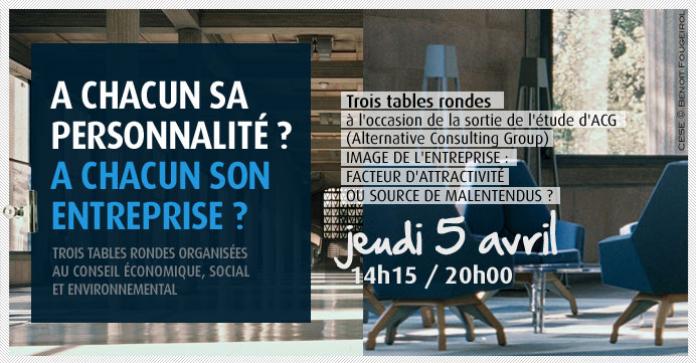
New York,
19 December 2011 — Today the
United Nations General Assembly in New York adopted the
declaration on human rights education and training as prepared by the Platform for Human Rights Education and Training
A/HRC/WG.9/1/CRP.1/REV.2.
Download the declaration on human rights education and training.
Proposed draft declaration on human rights education and training as prepared by the Platform for Human Rights Education and Training, A/HRC/WG.9/1/CRP.1/REV.2.
[The General Assembly] PP1 Reaffirming the purposes and principles of the Charter of the United Nations for the promotion and encouragement of respect for all human rights and fundamental freedoms for all without distinction as to race, sex, language, or religion,
PP2 Reaffirming that every individual and every organ of society shall strive by teaching and education to promote respect for human rights and fundamental freedoms,
PP3 Reaffirming that everyone has the right to education, and that education shall be directed to the full development of the human personality and the sense of its dignity, and enable all persons to participate effectively in a free society and promote understanding, tolerance and friendship among all nations and all racial, ethnic or religious groups, and further the activities of the United Nations for the maintenance of peace, security, and the promotion of development and human rights,
PP4 Reaffirming that States are duty-bound, as stipulated in the Universal Declaration of Human Rights and the International Covenant on Economic, Social and Cultural Rights and in other human rights instruments, to ensure that education is aimed at strengthening the respect for human rights and fundamental freedoms,
PP5 Acknowledging the fundamental importance of human rights education and training in contributing to the promotion, protection and effective realization of all human rights,
PP6 Reaffirming the call of the World Conference on Human Rights held in Vienna in 1993 on all States and institutions to include human rights, humanitarian law, democracy and rule of law in the curricula of all learning institutions, and stating that human rights education should include peace, democracy, development and social justice, as set forth in international and regional human rights instruments, in order to achieve common understanding and awareness with a view to strengthening universal commitment to human rights,
PP7 Recalling the 2005 World Summit Outcome, in which Heads of State and Government supported the promotion of human rights education and learning at all levels, including through the implementation of the World Programme for Human Rights Education, and encouraged all States to develop initiatives in this regard,
PP8 Motivated by the desire to send a strong signal to the international community to strengthen all efforts in human rights education and training through a collective commitment by all stakeholders,
Declares:
ARTICLE 1 (1) Human rights education and training is essential for the promotion of universal respect for and observance of all human rights and fundamental freedoms for all, in accordance with the principles of universality, indivisibility and interdependence of human rights.
(2) Therefore, everyone has the right to seek and to have access to human rights education and training.
(3) The effective enjoyment of all human rights, in particular the right to education, and access to information, enables access to human rights education and training.
ARTICLE 2 (1) Human rights education and training comprises all educational, training, information, awareness-raising and learning activities aimed at promoting universal respect for and observance of all human rights and fundamental freedoms and thus contributing, with knowledge, skills and understanding and developing their attitudes and behaviours, to empower them to contribute to the building and promotion of a universal culture of human rights.
(2) Human rights education and training encompasses education:
(a) About human rights, which includes providing knowledge and understanding of human rights norms and principles, the values which underpin them, and mechanisms for their protection;
(b) Through human rights, which includes learning and teaching in a way that respects the rights of both educators and learners;
(c) For human rights, which includes empowering persons to enjoy and exercise their rights and to respect and uphold the rights of others.
ARTICLE 3 (1) Human rights education and training is a lifelong process that concerns all ages.
(2) Human rights education and training concerns all parts of society, all levels, including preschool, primary, secondary and higher education, taking into account academic freedom where applicable, and all forms of education, training and learning, whether in a public or private, formal, informal or non-formal setting. It includes inter alia vocational training, particularly the training of trainers, teachers and State officials, continuing education, popular education, and public information and awareness activities.
(3) Human rights education and training should use languages and methods suited to target groups, taking into account their specific needs and conditions.
ARTICLE 4 Human rights education and training should be based on the principles of the Universal Declaration of Human Rights and relevant treaties and instruments, with a view to:
(a) Raising awareness, understanding, and acceptance of universal human rights standards and principles, as well as guarantees at the international, regional and national levels for the protection of human rights and fundamental freedoms;
(b) Developing a universal culture of human rights, in which everyone is aware of their own rights and responsibilities in respect of the rights of others, and promoting the development of the individual as a responsible member of a free, peaceful, pluralist and inclusive society;
(c) Pursuing the effective realization of all human rights and promoting tolerance, non-discrimination and equality;
(d) Ensuring equal opportunities for all, through access to quality human rights education and training, without any discrimination;
(e) Contributing to the prevention of human rights violations and abuses and to the combating and eradication of all forms of discrimination, racism, stereotyping, incitement to hatred, and the harmful attitudes and prejudices that underlie them.
ARTICLE 5 (1) Human rights education and training, whether provided by public or private actors, should be based on the principles of equality, human dignity, inclusion and non-discrimination, particularly equality between girls and boys and between women and men.
persons, and should take into account the particular challenges and barriers faced by, and the needs and expectations of, individuals belonging to vulnerable and disadvantaged groups, including persons with disabilities, in order to promote empowerment and human development and to contribute to the elimination of the causes of exclusion or marginalization, as well as enable everyone to exercise all their rights.
(3) Human rights education and training should embrace and enrich, as well as draw inspiration from, the diversity of civilizations, religions, cultures and traditions of different countries, as it is reflected in the universality of human rights.
(4) Human rights education and training should take into account different economic, social and cultural circumstances, while promoting local initiatives in order to encourage ownership of the common goal of the fulfillment of all human rights for all.
ARTICLE 6 (1) Human rights education and training should capitalize on, and make use of new information and communication technologies, as well as the media, to promote all human rights and fundamental freedoms.
(2) The arts should be encouraged as a means of training and raising awareness in the field of human rights.
ARTICLE 7 (1) States, and where applicable relevant governmental authorities, have the primary responsibility to promote and ensure human rights education and training, developed and implemented in a spirit of participation, inclusion, and responsibility.
(2) States should create a safe and enabling environment for the engagement of civil society, the private sector, and other relevant stakeholders in human rights education and training, in which the human rights and fundamental freedoms of all, including of those engaged in the process, are fully protected.
(3) States should take steps, individually and through international assistance and cooperation, to ensure, to the maximum of their available resources, the progressive implementation of human rights education and training by appropriate means, including the adoption of legislative and administrative measures and policies.
(4) States and relevant governmental authorities should ensure adequate training in human rights and, where appropriate, international humanitarian law and international criminal law, of State officials, civil servants, judges, law enforcement officials, military personnel, as well as promote adequate training in human rights for teachers, trainers, and other educators and private personnel acting on behalf of the State.
ARTICLE 8 (l) States should develop or promote the development at the appropriate level of strategies and policies, and, where appropriate, action plans and programs to implement human rights education and training, such as through its integration in school and training curricula. In so doing, they should take into account the World Programme for Human Rights Education and specific national and local needs and priorities.
(2) The conception, implementation, evaluation and follow-up to such strategies, action plans, policies and programs should involve all relevant stakeholders, including the private sector, civil society and national human rights institutions, by promoting, where appropriate, multi-stakeholder initiatives.
ARTICLE 9 States should promote the establishment, development and strengthening of effective and independent national human rights institutions, according to the Paris Principles, recognizing that national human rights institutions can play an important, including, where necessary, a coordinating role, in promoting human rights education and training by, inter alia, raising awareness and mobilizing relevant public and private actors.
ARTICLE 10 (1) Various actors within society, inter alia, educational institutions, the media, families, local communities, civil society institutions, including non-governmental organizations, human rights defenders, the private sector, and other non-state actors have an important role to play in promoting and providing human rights education and training.
(2) Civil society institutions, the private sector and other relevant stakeholders are encouraged to ensure adequate human rights education and training for their staff and personnel.
ARTICLE 11 The United Nations, international and regional organizations should provide human rights education and training for their civilian personnel, and military and police personnel serving under their mandates.
ARTICLE 12 (1) International cooperation at all levels should support and reinforce national efforts, including where applicable at the local level, to implement human rights education and training.
(2) Complementary and coordinated efforts at the international, regional, national and local levels can contribute to more effective implementation of human rights education and training.
(3) Voluntary funding for projects and initiatives in the field of human rights education and training should be encouraged.
ARTICLE 13 (1) International and regional human rights mechanisms should, within their respective mandates, take into account human rights education and training in their work.
(2) States are encouraged to include, where appropriate, information on the measures that they have adopted in the field of human rights education and training in their reports to relevant human rights mechanisms.
ARTICLE 14 States should take appropriate measures to ensure the effective implementation of and follow-up to this Declaration and make the necessary resources available in this regard.
Download the declaration on human rights education and training. Interview par VÉRONIQUE SOULÉ. Longtemps, les diplômes ont eu très peu de liens avec le monde professionnel. L’école n’était là que pour éduquer et instruire. Analyse de Claude Lelièvre, historien de l’éducation.
Interview par VÉRONIQUE SOULÉ. Longtemps, les diplômes ont eu très peu de liens avec le monde professionnel. L’école n’était là que pour éduquer et instruire. Analyse de Claude Lelièvre, historien de l’éducation. Interview by VERONICA SOULÉ. Long time, the diplomas have been very few links with the professional world. The school was there to educate and instruct. Analysis of Claude Lelièvre, educational historian.
Interview by VERONICA SOULÉ. Long time, the diplomas have been very few links with the professional world. The school was there to educate and instruct. Analysis of Claude Lelièvre, educational historian. 







/https%3A%2F%2Fprofilepics.canalblog.com%2Fprofilepics%2F1%2F0%2F1076071.jpg)